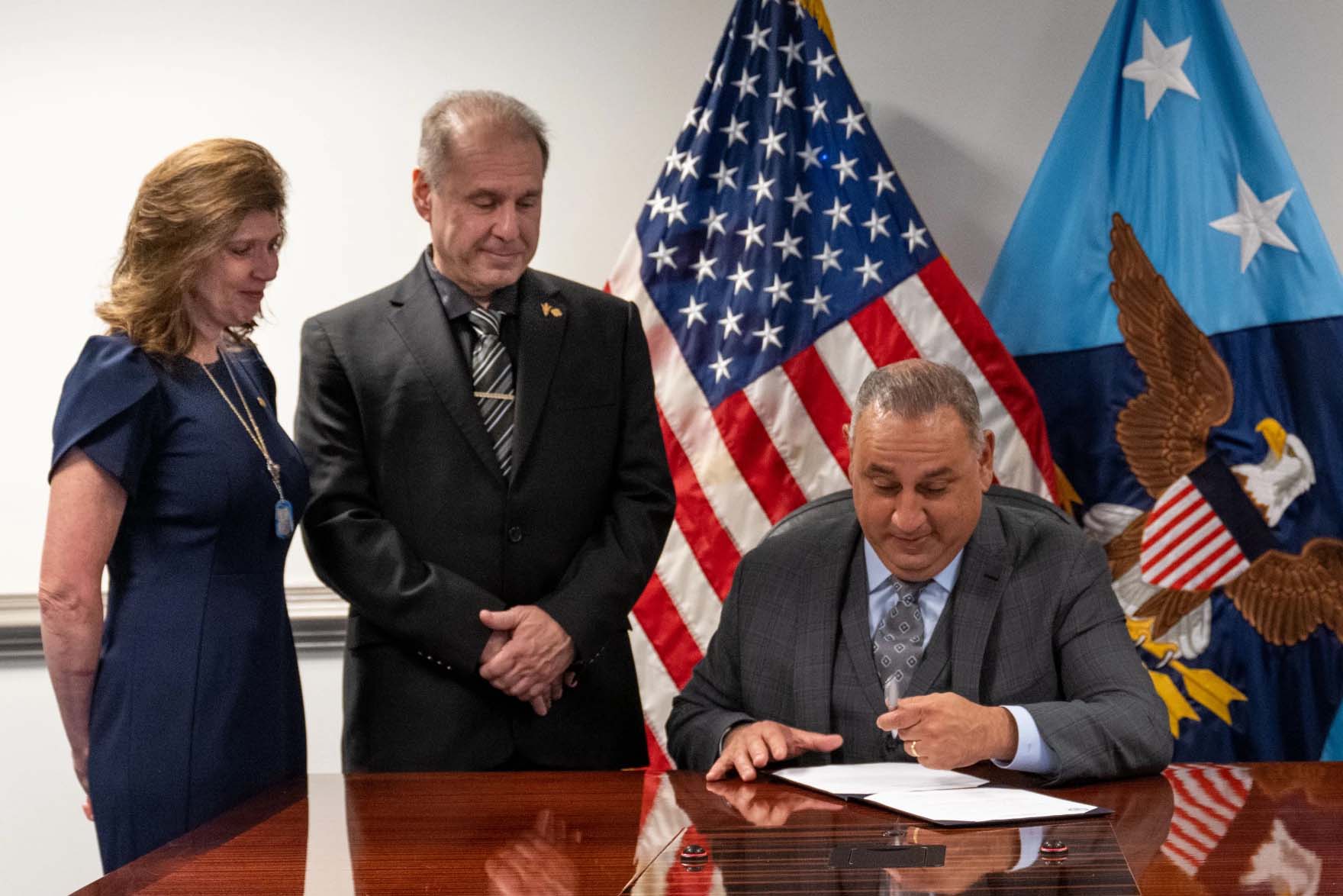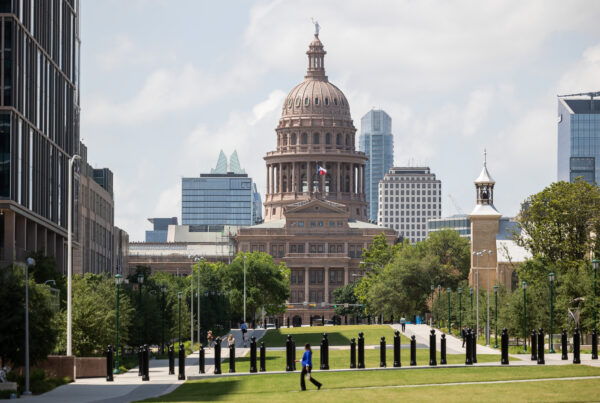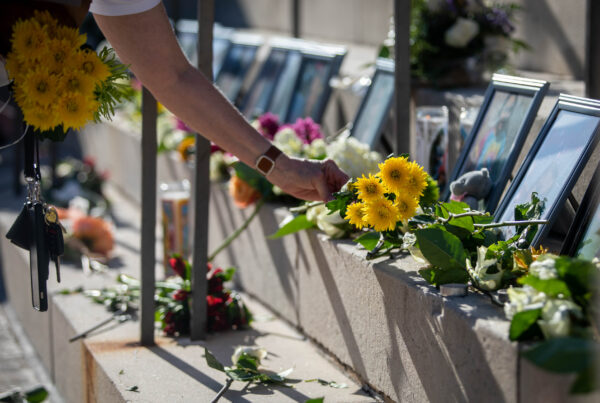From the American Homefront Project:
The last several years have been exhausting for the parents of Brandon Caserta, who died by suicide at Naval Air Station Norfolk in 2018.
“He just has helped people almost from birth,” said Teri Caserta, Brandon’s mother. “He loved life. He loved people. He loved to help people.”
Brandon left texts saying he had been bullied and harassed by his command. The sailor’s final notes say he wanted to help others in similar situations, so his family pushed for the law, which makes it easier for sailors to ask for help, even when their command is reluctant.
“If you invoke the Brandon Act, you get to go attend to whatever your problem is immediately, and the command needs to help you with it,” said Patrick Caserta, Brandon’s father. “So if you don’t have an appointment or can’t get one, they need to get you one and ensure that you’re going.
Congress passed the law in 2021. Caserta’s parents are frustrated that the Pentagon is just now implementing the new rules across all services. Each branch has a higher suicide rate than the general public.
Though the law spells out that commands are responsible for getting help for service members quickly, that doesn’t mean help is always available. The Navy told Congress last May that half its Deployed Resiliency Counselor positions were unfilled.
All of the services are struggling to find mental health providers, said Father William Waff, who runs the Military Chaplains Association. Waff is a retired Army major general who worked as a hospital chaplain before he retired.
“Everybody wants a mental health professional, and the number one person that the VA is recruiting for are mental health professionals,” Waff said. “The branches of the military are doing the exact same thing.”
The services are trying to fill the gap with chaplains, who are used to playing a spiritual and wellness role. Over the years they have been given more mental health training, but not enough to be licensed in mental health. Their job is to mainly alert medical staff when they notice a change in behavior among a soldier or crew member, Waff said.
“You will not be a therapist. You will not be a counselor,” Waff said. “Basically, you’re providing an awareness that there are some things that would be indicators for a referral to a mental health specialist.”
Even finding chaplains is tough. The Air Force wants more chaplains to deploy forward with units. The Navy estimates it will need an extra 70 to 90 chaplains to fulfill its plan to put chaplains on every destroyer.
Obtaining mental health care often isn’t much easier for service members who pursue options outside the military.
In Norfolk, only one private mental health practice is dedicated to active duty clients.
“There’s to me nothing more rewarding than working with active duty,” said Greg Lemich, who runs the practice. But he adds that private providers often have a full client list and are put off by the paperwork associated with TriCare, the military’s insurance program.
Clinicians in the provide sector also may be unprepared for the schedules of service members. Lemich, for instance, said his office sees an influx of new clients whenever an aircraft carrier arrives in Norfolk.
And military personnel often have particular stressors of military life, such as combat related injuries and other issues.
“Military sexual trauma is unfortunately something that we see quite a bit,” Lemich said. “People who are on board a ship and somebody who they know commits suicide is something which can be very devastating,”
The root cause of suicide is elusive. Around Norfolk, nine sailors died in a little over a year when they were assigned to shore duty or their vessels were in the shipyard. Cmdr. Michael Siedsma, the captain of the submarine Massachusetts, which is under construction at Newport News, acknowledges the challenge for the crew.
“It’s certainly a big stressor for them. If you sign up for the Navy to go to sea and see the world and visit foreign ports, and that foreign port is Newport News, Virginia, that maybe is not what you would count on. It can be tough for some of those folks,” Siedema said.
His philosophy is to engage with sailors and keep the crew busy and motivated. He said the Navy has improved living conditions at shipyards in recent months.
The Pentagon officially rolled out the Brandon Act May 5. The services have 45 days to create policies for implementing the new law for all active duty troops. The law will then be extended to reserve and National Guard troops after another 45 day window. The Defense Health Agency plans to train commanders how to refer troops to mental health treatment and promote the policy among service members, with the goal of lessening the stigma of seeking treatment.
The National Suicide Prevention Lifeline is a hotline for individuals in crisis or for those looking to help someone else. To speak with a certified listener, call 988.
CrisisText Line is a texting service for emotional crisis support. To speak with a trained listener, text HELLO to 741741. It is free, available 24/7, and confidential.
This story was produced by the American Homefront Project, a public media collaboration that reports on American military life and veterans.














